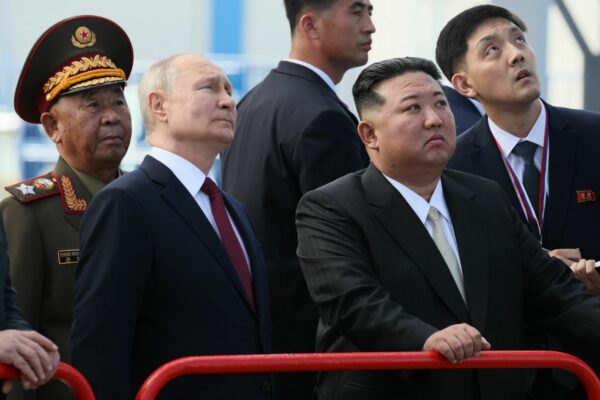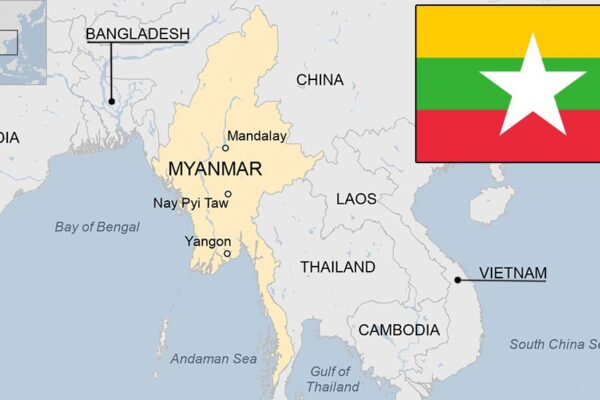
Hun To went after the press; who really won?
ANALYSIS He is the notorious playboy cousin of Cambodia’s prime minister, and has long been viewed as the family’s fixer for all things they would rather not come into public view. Hun To has reportedly been investigated by Australian police for heroin trafficking; faced questions in connection to threats against the family of slain political analyst Kem Ley, which fled to Australia in 2016 and; in recent years, reporting by Al Jazeera and The Australian newspaper has tied him to cyber slavery, scam compounds and drug smuggling. But in bringing lawsuits against those news organizations, he inadvertently highlighted how Australia – a key regional partner for Cambodia – is running out of patience for the Hun dynasty’s antics. Earlier this month, Hun To scored an apparent victory after he secured an out-of-court settlement over a years-long dispute with The Australian. The outlet agreed to retract a 2-year-old story it had published about Hun To that “some readers may have understood” to have alleged that he “was linked to human trafficking, cyber scams and drug importation,” the paper wrote. “The Australian did not intend to make any such allegations against Mr Hun and accepts his denials of such conduct.” The retraction marked the conclusion of a defamation case Hun To had brought against The Australian in December 2022. It came just after the Australian government had declined to renew his visa, RFA has learned – even though he had spent decades living part-time in the country and he and his family owned extensive business and property interests around Melbourne. While Canberra gave no reason for its decision, Hun To’s lawyers insisted in court complaints seen by RFA that the rejection was spurred by news stories from The Australian and Al Jazeera linking him to organized crime, fraud factories and human trafficking in his native Cambodia. A case launched in parallel by Hun To against Al Jazeera is ongoing. The Qatari state-funded outlet did not respond to a request for comment. Australian libel law is notoriously plaintiff-friendly, particularly in cases where the defendant is a news organization. This growing reputation led the author of a 2019 New York Times op-ed to dub the island nation “the defamation capital of the world.” In Australian defamation cases, the burden of proof uniquely rests with the defendants. No other type of case places such burden on the party being sued. In such a legal environment, defendants run higher risks of losing and incurring hefty damages, and that has often encouraged news organizations to settle out of court. The retraction might have gone little noticed until Hun To’s lawyer, Adam Lopez – who has been known for taking on controversial defamation cases – took to LinkedIn to gloat about his victory. The dispute with The Australian had been “resolved on a confidential basis,” he noted, suggesting that the newspaper had made further concessions beyond the retraction. Cambodia press and social media users quickly picked up the story, with some simply reporting on the retraction and others criticizing The Australian or the Australian court system. With the scrubbing of the controversial story, Hun To enjoyed precisely one day of victory. On July 10, news broke suggesting Hun To’s business interests were neck deep in exactly the type of allegations for which The Australian had just apologized. Elliptic, a financial compliance firm specializing in tracing cryptocurrencies, published a report alleging that a “Cambodian conglomerate with links to Cambodia’s ruling Hun family” had laundered more than US$11 billion for cyber scammers. The name of the company was Huione Pay, and Hun To is one of its three directors. A subsequent report by Reuters found evidence that Huione Pay had processed cryptocurrency worth $150,000 that had been stolen by the sanctioned North Korean hacking collective known as Lazarus. In response to the allegations, National Bank of Cambodia, the country’s central bank, told Reuters that it “would not hesitate to impose any corrective measures” on Huione, although it said so “without saying if such action was planned,” the news agency drily noted. Following the revelations, digital finance company Tether announced that it had frozen $29 million of cryptocurrency held by Huione following a “a direct request from law enforcement.” Whether the latest news make Hun To reconsider going after the press, however, seems unlikely, said Phil Robertson, director of Asia Human Rights and Labor Advocates. Hun To “would be wise to abandon his case since all the dirt has come out on Huione, but he won’t because he’s a shameless, arrogant, rights-abusing tycoon who believes that whatever he does, the ruling Hun family will have his back.” Neither Huione’s nor Hun To’s lawyer had responded to requests for comment as of publication. These allegations are far from the first time Hun To has caught negative publicity. Australian MP Julian Hill spoke in Parliament last March arguing that Hun To and other politically connected Cambodian figures “should never again be granted visas to visit Australia.” His speech charted Hun To’s long and checkered links to Australia, noting that as early as 2003 Australian police had sought to arrest him on suspicion of heroin trafficking. Since then, Hun To and his wife acquired millions of dollars’ worth of property in Australia, Hill added, “with seemingly no legitimate explanation for where their wealth has come from.” “It’s no secret that Hun To has his finger in lots of pies — drug trafficking, illegal deforestation, animal trafficking, illegal gambling,” Hill said. “Most recently, we’ve heard reports he’s dipping his toes into human trafficking, as well. That’s diversifying, isn’t it?”






